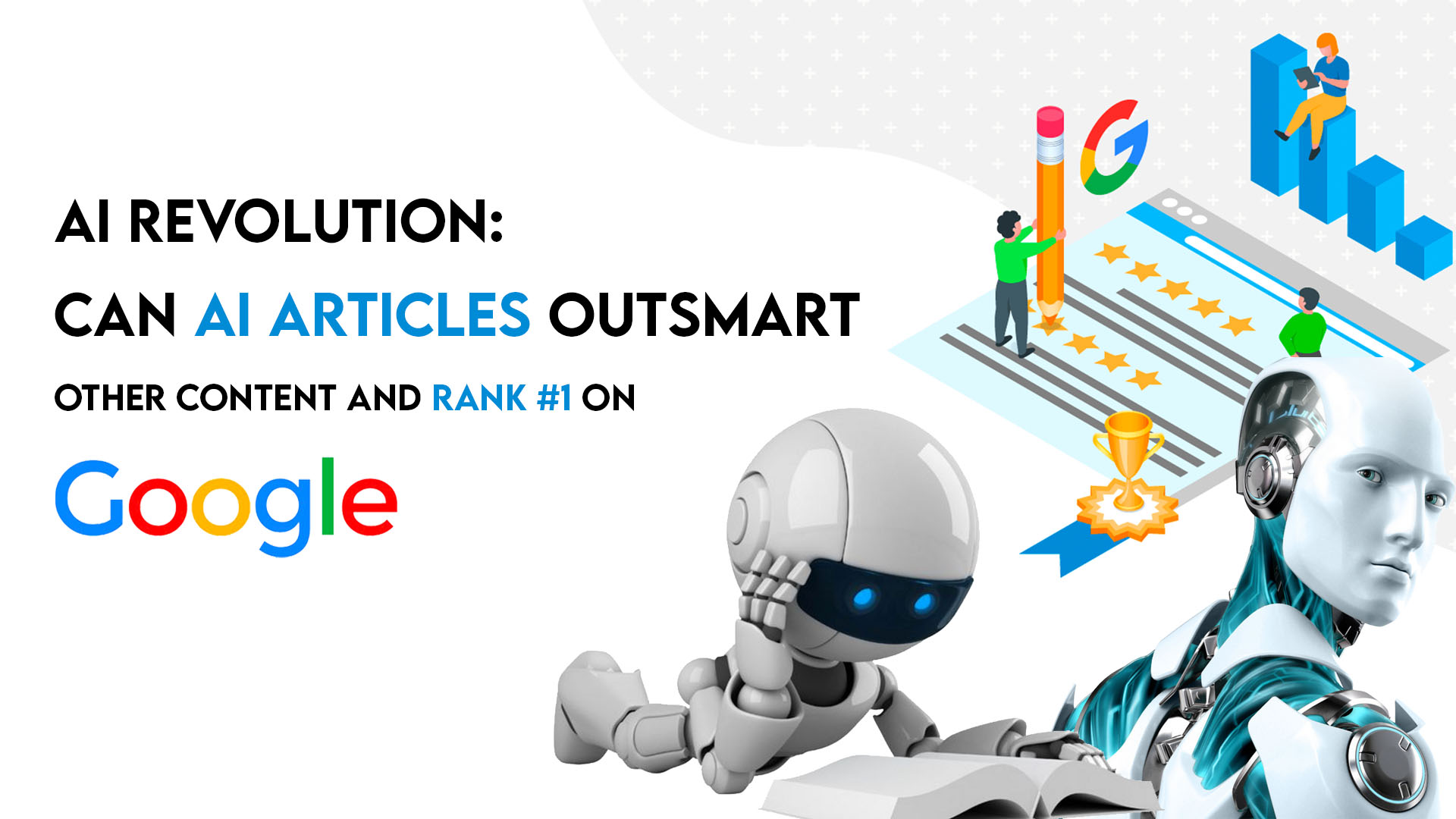
Artificial Intelligence (AI) has been the talk of the town for a few years now. It has changed the way we live, work, and interact with the world around us. With the rise of AI technology, there has been a growing concern about its impact on search engine optimization (SEO). In this blog post, we will discuss whether AI articles will be ranked in Google and what steps you can take to make sure your AI content is SEO-friendly.
First, let’s talk about the basics of SEO. Search engine optimization is the process of improving the quality and quantity of website traffic by increasing the visibility of a website or a web page in a search engine’s unpaid results. When we talk about search engine optimization, we are mostly concerned with Google, as it is the most widely used search engine in the world.

Now, coming to the question of whether AI articles will be ranked in Google. The answer is a definite yes. AI articles have the potential to rank in Google just like any other content. However, there are a few things you need to keep in mind to make sure your AI articles are optimized for search engines.
Write for humans, not just for machines
The first and most important thing to keep in mind when writing AI articles is that you should write for humans, not just for machines. Even though AI is becoming more and more intelligent, it still lacks the ability to understand and interpret human emotions and needs. Therefore, it is essential to write in a way that is easy for humans to understand and relate to.
Choose the right keywords
Keywords play a crucial role in SEO. When writing AI articles, it is important to choose the right keywords that your target audience is searching for. This will help your content to rank higher in search results.
Optimize your meta tags
Meta tags are HTML tags that provide information about your website to search engines. This information includes the title, description, and keywords of your webpage. Optimizing your meta tags is crucial in helping search engines understand what your webpage is all about.
Use internal and external links
Internal and external links are links that point to other pages on your website or to other websites. Including internal and external links in your AI articles can help search engines understand the context of your content and improve your website’s credibility.
Make your content shareable
Social media is an important part of SEO. Making your AI articles shareable on social media can help improve your website’s visibility and drive more traffic to your website.
In conclusion, AI articles can rank in Google just like any other content. However, it is important to keep in mind that writing for humans, choosing the right keywords, optimizing your meta tags, using internal and external links, and making your content shareable are all crucial factors in optimizing your AI content for search engines. By following these simple steps, you can ensure that your AI articles are SEO-friendly and rank higher in search results.


